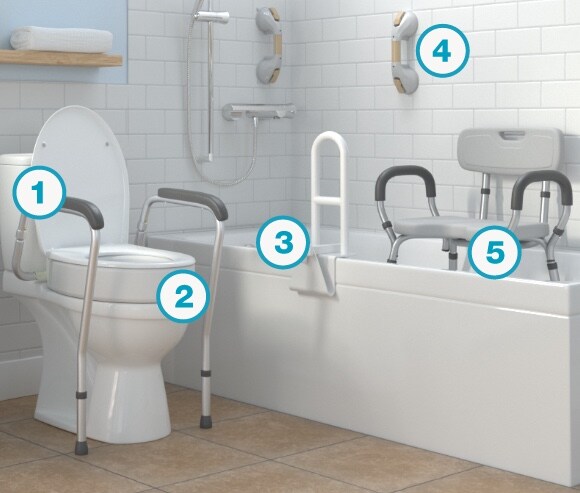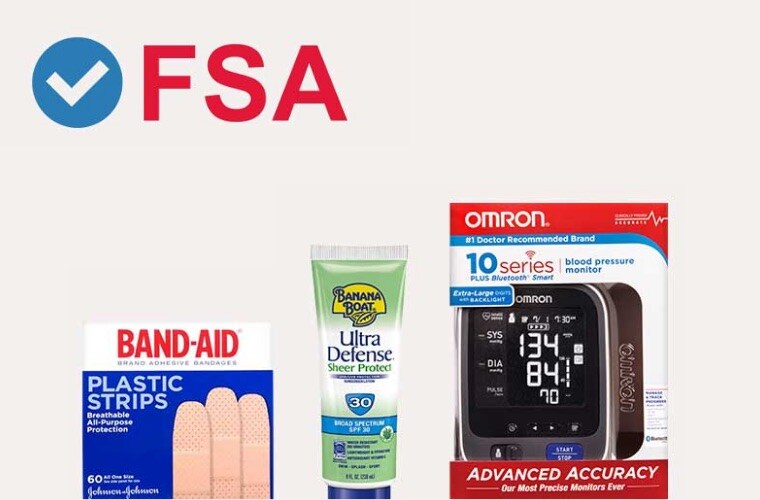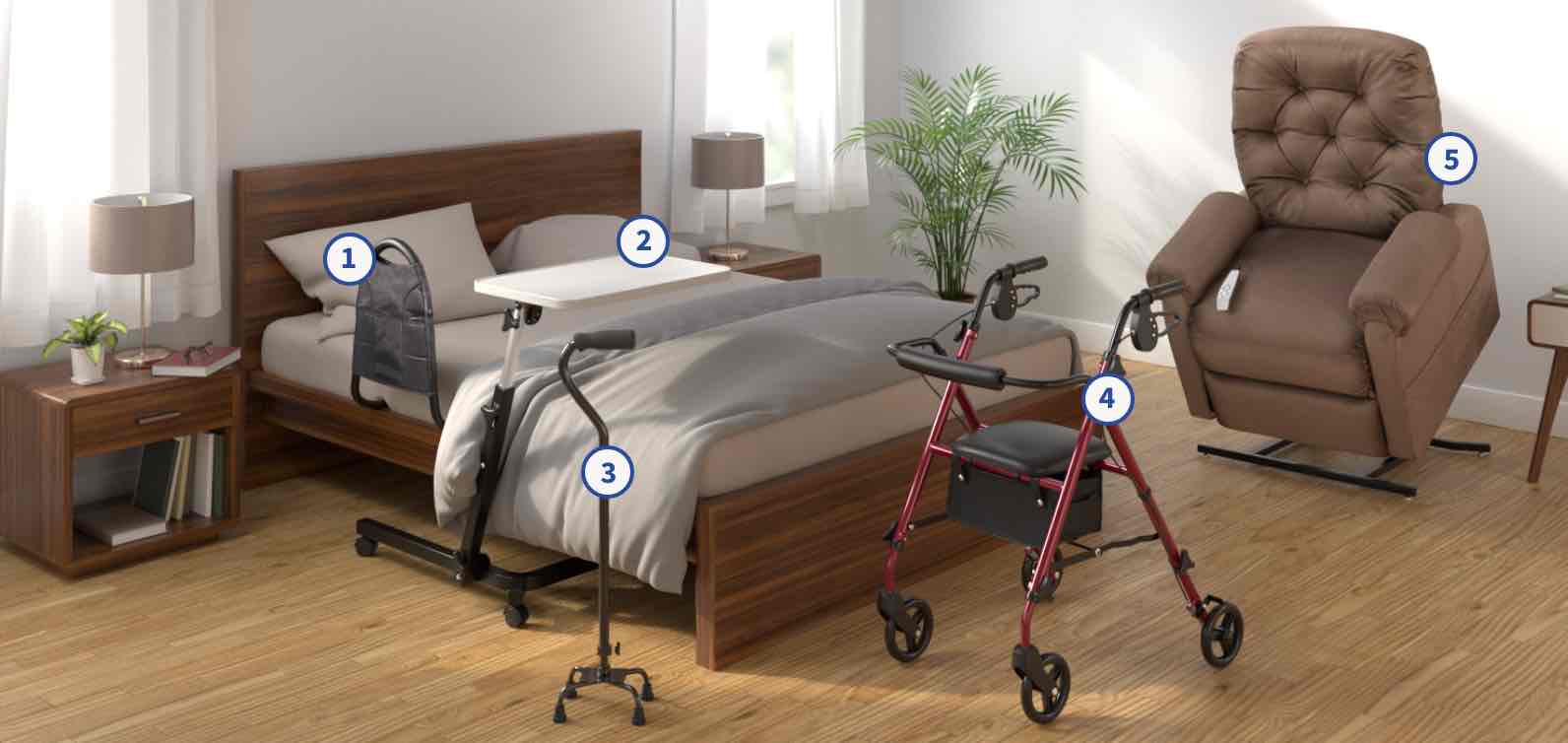Home Health Care Solutions
Caregiver Essentials
Providing care can be challenging. We’re here to help, with supplies and services to keep loved ones safe and comfortable.
Bathroom
Safety Checklist
More than one in four older adults experiences a fall every year, according to the Centers for Disease Control and Prevention, and falls in the bathroom are a frequent cause of injury.

Shop products that help keep bathrooms safe, from grab bars to bath chairs.
Bedroom
Safety Checklist
Mobility aids can help your loved one maintain or improve functioning and independence. Work with a healthcare provider to choose the right aid and fit.

Shop products that help keep bedrooms safe and comfortable, from bed rails to lift chairs.
More Essentials for Caregiving
Additional products to help loved ones find the support they need.

Incontinence Solutions
Pads, liners, protective underwear, cloths and wipes help those with bladder or bowel control challenges feel more comfortable.

Skin Health
Cleansers can be used to remove impurities from the skin, while creams and lotions soothe, moisturize and protect the skin.

Medical Nutrition
Nutritional drinks, shakes and supplements help provide complete and balanced nutrition, including additional calories, protein and fiber.

Stress Relief
It's important for caregivers to take care of themselves, too. Vitamins, Epsom salt baths, essential oils and more can support your self-care routine.
Convenient Services
Time-saving ways to connect with healthcare providers, manage prescriptions and more.

- Health services for 100+ conditions
- In-person & online visits
- No appointment needed
-

FSA
Use your FSA to save on eligible products.
Frequently Asked Questions
- What is a caregiver?
A caregiver is anyone who is actively engaged in providing care to another person in need, such as an aging parent or an ill spouse. While caregivers can be paid professionals, most are family members or friends who provide care to their loved one. Caregiving is a demanding job that most of us will face at some point in our lives. According to the Family Caregiver Alliance, each year approximately 44 million Americans provide 37 billion hours of unpaid “informal” care for adult loved ones with chronic illnesses or conditions that make it difficult to handle daily activities.
- What do caregivers do?
Caregivers help keep their loved one safe and comfortable and assist with the activities of daily living. These activities could include shopping for their loved one’s food and personal items, attending medical appointments, managing their loved one’s finances, providing transportation and communicating with relatives and friends about their loved one’s condition.
- How do you take care of a loved one at home?
Taking care of a loved one at home involves assisting them with tasks that they can no longer handle on their own, such as bathing, dressing, mobility, preparing meals, managing medication and more. It also means making the home a less hazardous environment. You might make simple fixes for fall prevention, such as removing throw rugs, or install daily living aids such as grab bars and handrails. Depending on your loved one’s changing needs over time, you may need extra assistance and expertise. Consider reaching out to professionals, such as occupational therapists and geriatric care managers, to assess the home and make recommendations.
- What types of products do I need to help take care of a loved one?
There are a wide variety of products that help you provide essential care for a loved one. These include walkers and rollators, bathroom safety products, canes and crutches, lift chairs, incontinence protection, daily living aids, pain relief and management and more.
- What caregiving tools and resources does Walgreens offer?
In addition to selling a wide range of home health care products, Walgreens offers a variety of convenient services that can help caregivers manage their loved one’s health and wellness. These include Find Care, a digital platform that can connect you to doctors, therapists, dermatologists and other health care providers within minutes; flu shots and immunizations; Pharmacy Chat; Save a Trip Refills and Family Prescriptions. On Walgreens.com, caregivers can find useful information about pain management, diabetes, oncology and more.
- What are some tips for new caregivers?
To help new caregivers, the Family Caregiver Alliance recommends learning about your loved one’s diagnosis, talking about finances and healthcare wishes, bringing family and close friends together to discuss the care needed, taking advantage of community resources (such as Meals on Wheels and adult day programs) and finding support through in-person groups and online communities. Caregiving can be a challenging job, and it’s easy to become overwhelmed. Successful caregivers also need to care for themselves and ask for help if experiencing burnout.
- How can caregivers deal with stress?
There are many things caregivers can do to reduce stress and help avoid burnout (a state of mental, emotional and physical exhaustion). It’s important to speak up when you’re feeling overwhelmed, enlist help from others, prioritize activities that you find fulfilling, get out of the house and find ways to pamper yourself. Taking care of your own health is crucial, including exercising, eating well and getting enough sleep. Practicing relaxation, in the form of mindfulness mediation, deep breathing or yoga, is a great way to decompress.
* $0 copay on Tier 1 generic drugs when enrolled in select plans where Walgreens is a Preferred Pharmacy.


























